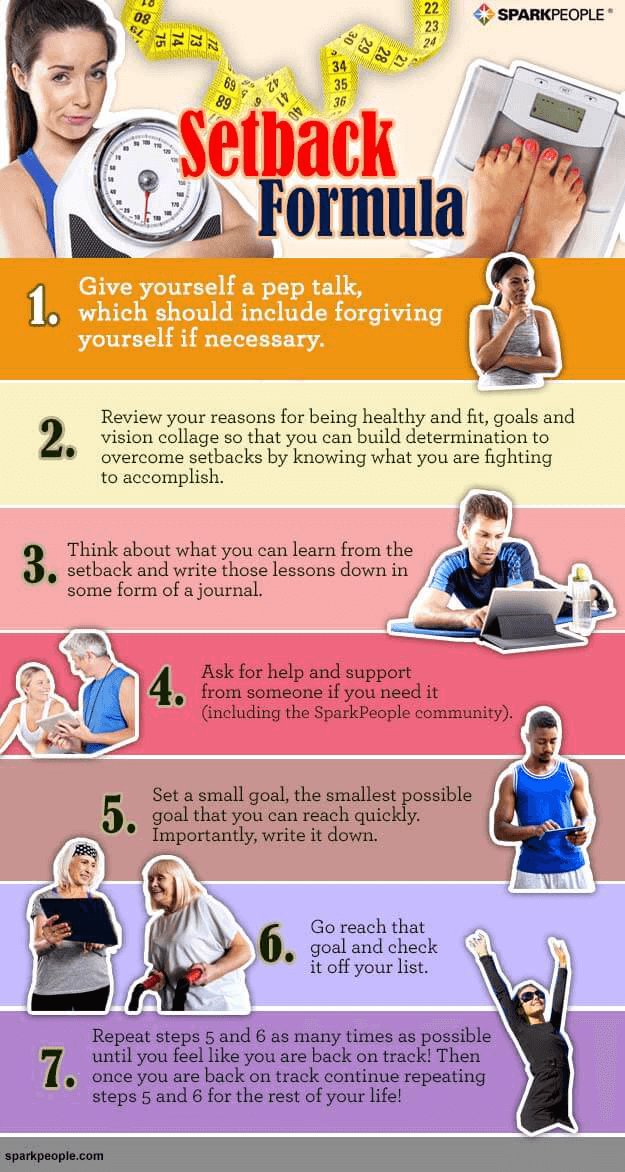|
Let’s make one point clear: Everyone has setbacks. This is a normal part of every type of adventure. At SparkPeople, we've seen every setback imaginable, from the unavoidable events to the mental barriers. In fact, our experience shows that setbacks are one of the top reasons people fall off of their healthy lifestyle journey. Raise your hand if any of these sound familiar:
Here’s a simple example: Thomas Edison is a giant in history, in part for inventing the light bulb. But do you think he invented the light bulb on his first attempt? No, he didn’t. Would it have been good for him to give up after the first attempt didn’t work out? No, of course not. I did research and the story is a little murky, but he made at least hundreds of attempts and possibly thousands of attempts before developing a commercially viable light bulb. Edison was famous for how he handled failure. According to the Thomas A. Edison Papers, here is a quote from Edison as he was later working on storage batteries: "This [the research] had been going on more than five months, seven days a week, when I was called down to the laboratory to see him [Edison]. I found him at a bench about three feet wide and twelve feet long, on which there were hundreds of little test cells that had been made up by his corps of chemists and experimenters. I then learned that he had thus made over nine thousand experiments in trying to devise this new type of storage battery, but had not produced a single thing that promised to solve the question. In view of this immense amount of thought and labor, my sympathy got the better of my judgment, and I said: 'Isn't it a shame that with the tremendous amount of work you have done you haven't been able to get any results?' Edison turned on me like a flash, and with a smile replied: 'Results! Why, man, I have gotten lots of results! I know several thousand things that won't work!'" The point of this story is that most setbacks are not important; how you handle the setback is crucial in deciding who succeeds. When I used to have anxiety, I was terrified to have setbacks because I was such a perfectionist. After years of self-reflection, though, I finally realized some things about setbacks:
I have learned that I’d rather have people on my team who have either made mistakes, had setbacks or have had to overcome some type of obstacle. These people often become extremely passionate about both reaching additional goals and motivating others to reach their goals, as well. The Setback Formula This formula for handling setbacks applies to any type of life setbacks and not just weight-related ones. One member made such a great comment that I'm adding it here: "This reminded me of what I have frequently said about my beadwork: I learn more from correcting mistakes than from doing the stitch/pattern right. That's also been true in photography. Now I just need to apply that to other areas!" INITFORLIFE3
|